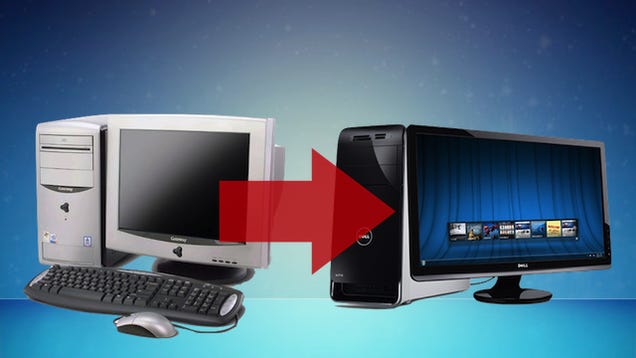Three steps to take before buying a new computer
Five questions to consider during an IT review
June 27, 2016Best Practices for Email Maintenance
August 8, 2016
If you read our blog post a few weeks ago, you’ll be able to recognize the signs that you need to purchase a new computer (or several). A new computer is a pretty large commitment, as you’ll expect it to last for approximately the next five years, and provide you with all the functionality you need during that time. Before you hand over the cash for a new machine, make sure you’ve followed these three steps:
Understand your needs
Purchasing a computer that doesn’t do what you need it to is about as useful as buying a cheeseburger for a vegan, and significantly more expensive. The product you ultimately end up purchasing will depend on the kind of workplace you have, as well as the requirements of the employee(s) who will be using it. At minimum, you should consider the following:
- How many people will use it? Will this computer be devoted to just one employee, or will it rotate between many employees working separate shifts?
- Will this computer be used as a full workstation, or is it just intended to connect to a virtual machine or Terminal server session?
- What is this computer being used for? Employees focusing on graphic design or web development may prefer to use a Mac, while users performing data analysis would benefit from a computer running Windows. Additionally, answering this question will tell you how powerful the computer needs to be.
- Does the computer need to be portable? Is your employee going to be transferring it between home and work or from site to site, or will it be stationed on top of a desk for the duration of its use?
Understand how the new computer will fit into your existing infrastructure
If your entire company works in a PC environment, introducing a Mac can be a risky move. Not all applications are available on both operating systems, and unexpected issues can arise from conflicts between the two. This same warning should be heeded for introducing a PC into a Mac environment.
It’s also important to ensure the computer’s hardware meets your requirements; some newer, lighter laptops don’t include Ethernet ports, but these are absolutely essential if your office doesn’t have a corporate wireless network. You may also need additional ports for dual monitor setup, or extra storage space or processing power depending on what kind of functions the computer will be used to perform.
Talk to your MSP!
Your MSP is better equipped than anyone else to advise you on your options. They will know which computers can best support your requirements, and have an in-depth knowledge of your network that enables them to inform you which systems will best integrate into your existing infrastructure.
Even if you have a good idea of the computer you need, it’s best to run it by your MSP first. They’ll may be able to offer you an alternative option, or even get you a better deal on the purchase than if you bought the computer through retail—and if you’re about to buy a computer that won’t work for you, you can be sure that they’ll let you know.

